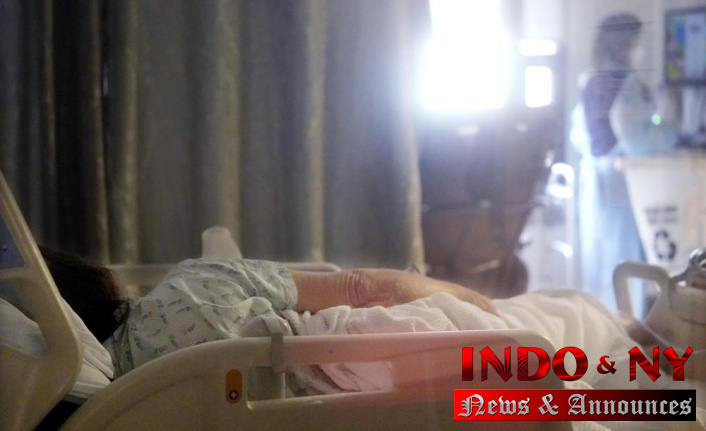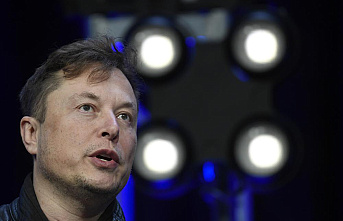The U.S. was able to provide health care for everyone for the first time during the coronavirus pandemic. But only for COVID-19.
Things are back to normal now that federal money for COVID coverage of the uninsured has dried up, creating a barrier to timely access.
Even though the virus can be controlled better, it is still not eliminated. Safety-net hospitals and clinics are experiencing sharply increased salaries and other operating expenses. They are worried that they will not be ready if there is another surge or no backstop.
Dr. Mark Loafman is the chair of family medicine and community medicine at Cook County Health. He said that "we haven't turned anyone away yet." "But it's only a matter time... Americans don't have the means to afford treatment for cancer or high blood pressure every day.
Uninsured persons could be covered by a $20 billion government COVID program. It covered treatment, vaccines and testing. This program has been discontinued. It is possible that special Medicaid COVID coverage for uninsured people in more than a dozen States will also end soon.
Parkland Health is the Dallas' primary hospital system. Dr. Fred Cerise raises questions about the logic behind cutting federal funds at a moment when health officials are introducing a new "test to treat" strategy. COVID-19 patients can now take antiviral medication at home to avoid hospitalization. An example is Vice President Kamala Harris who was recently positive, but is now back at the White House.
Cerise, the president and CEO of this system, predicted that "Test-to–treat" will prove difficult for individuals who are not insured. People will be reluctant to accept a large-scale change in strategy if it isn't funded.
The federal Department of Health and Human Services claims that Paxlovid, an antiviral drug, was paid for by the taxpayer and is supposed to be available at no cost to all patients, regardless of their insurance.
They also acknowledge that not all people are able to afford the prescription. "We hear from local and state partners that the Uninsured Program lacks funding is making it difficult for individuals to access medication," stated Dr. Meg Sullivan chief medical officer of the HHS preparedness response division.
The pandemic has never been a national crisis.
Larry Levitt, a nonpartisan Kaiser Family Foundation health policy expert, stated that while we are far from universal health coverage in America, there was a time when we had universal coverage for COVID. It was amazing.
Recently, a White House request for $22.5 million for COVID priorities was rejected by Congress. Even a reduced version of the request is not enough. Biden's request for $1.5 billion includes $1.5 billion to refill the Uninsured Program. This program paid for treatment, testing, and vaccine-related costs for uninsured people. Due to lack of funds, the program is no longer accepting claims.
This program, together with a lesser-known Medicaid option for states allowed thousands of people without insurance to receive care without having to worry about the cost. As congressional Republicans raise concerns about pandemic spending, bipartisan support has fallen.
The Uninsured Program was managed by the Health Resources and Services Administration (HHS agency). For reimbursement, medical providers who saw uninsured patients could submit their bills. In the past two years, payments have been made to more than 50,000 hospitals and clinics as well as medical practices. If Congress gives more money, officials say they will be able to turn the program around.
As a way of helping states pay for the testing of uninsured persons, the Medicaid coverage option was created by Trump's administration. President Joe Biden expanded the Medicaid coverage option to include treatment and vaccine costs in his coronavirus relief bill. It is a COVID insurance policy. It cannot be used to pay for any other services like knee replacements. 100% of the cost is covered by the federal government.
15 states have taken advantage of this option, including three U.S. Territories. It will be ended when the federal coronavirus public safety emergency, which is currently expected to end later in the year, is over.
Henry Lipman, New Hampshire Medicaid Director, said that the coverage option allowed the state to enroll approximately 9,500 people in COVID care. This includes new antiviral medications that can be taken at-home.
Lipman stated that it is a safety net for those who don't have insurance. It's not a perfect situation but it can be a great back-up in a pandemic. With a communicable disease like HIV, it makes sense.
COVID cases are now at a low level, so there is less demand for vaccination, testing and treatment. Hospitals and other medical service providers feel a sense of urgency, but this is due to their bottom line.
Craig Thompson, CEO of Golden Valley Memorial Healthcare in Missouri, is concerned about federal funding disappearing at a time when operating costs are rising. Staff have been given raises, while drug prices have increased by 20% and supply cost by 12%.
Thompson stated, "We have now emerged from this pandemic... and into probably the most inflationary environment I've ever seen in my career." The area served by the health system is mainly rural, located between Kansas City (Kansas City) and Springfield.
Family Health Centers of Louisville in Kentucky closed the testing services for uninsured persons after federal funds ran out. They were to charge $65 per test with the private company they were working for.
Melissa Mather spokeswoman said that things are easy now, because there is little demand. However, she warned, "if we get hit by another omicron it will be very difficult."
Floridian Debra McCoskey-Reisert, a Floridian, is not insured and lost her older brother COVID-19 in its first wave two years back. He made it clear that he would not let her contract the virus in one of their final conversations.
McCoskey -Reisert lives north of Tampa and has not been infected. However, she is worried about what might happen if her husband or she get sick.
She said, "If one of us gets COVID, there's no way to pay." If we don't get help, it would be likely to bankrupt us.
Loafman, a Chicago hospital physician, stated that the reduction in uninsured patients mirrors the larger problems of the U.S. healthcare system.
He stated, "Quite frankly we as a society take the COVID patients in our care because it's affecting them." "You know, a gated community can't keep a disease out... That's the ugly truth. Our altruism in this regard was self-motivated."
Date Of Update: 06 May 2022, 05:52










